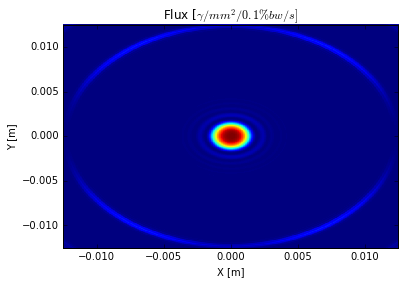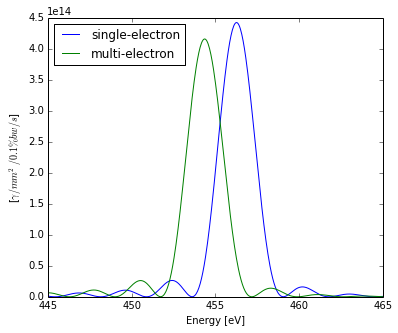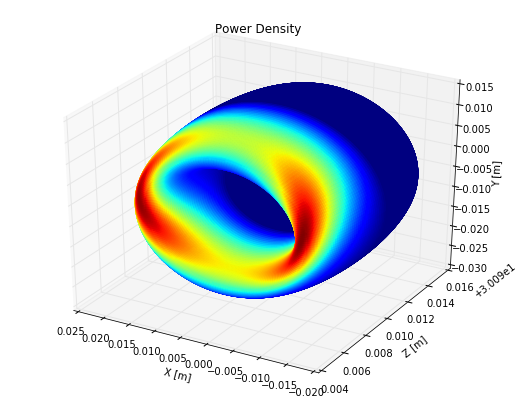Home
Latest release: 2018.06.27 - 2.1.8
OSCARS is a modern code for the computation of radiative properties of charged particles in electromagnetic fields. OSCARS is capable of calculating spectra, flux, and power densities for arbitrary field configurations, multi-particle and mixed-particle beams, with user configurable precision. Notably, OSCARS is capable of calculating flux and power density distributions on arbitrary shaped surfaces in 3-D. It also accepts time-dependent electric and magnetic fields as input.




Advantages of OSCARS
- Accurate calculation with user defined precision.
- Multi-threaded and capable of using your GPU.
- Input of time dependent fields.
- Designed with very large scale computing in mind.
- Simple and very powerful python API (application program interface).
- 100% Open Source.
- We welcome feedback and contributions.
The core of OSCARS is written in modern c++ for speed with a simple python user interface. No additional packages are required to run the core of OSCARS. One can easily run OSCARS on their desktop or laptop computer. It also comes with utilities to use MPI for your local machine and cluster usage. Significant gains are achieved through the use of graphical processing units (GPUs) and OSCARS makes this very easy for compatible nvidia GPUs. OSCARS was also designed with very large scale computing in mind and easily runs on "the cloud" and such facilities as the Open Science Grid.
OSCARS is also intended to be an open source and community based project with contributions from anyone willing and able regardless of institution or position. We also encourage user feedback in order to continually improve the ease of use and calculations within. If you are interested in contributing or giving us feedback, please send an email to oscars@bnl.gov.
Last modified: 27 June 2018.
oscars@bnl.gov